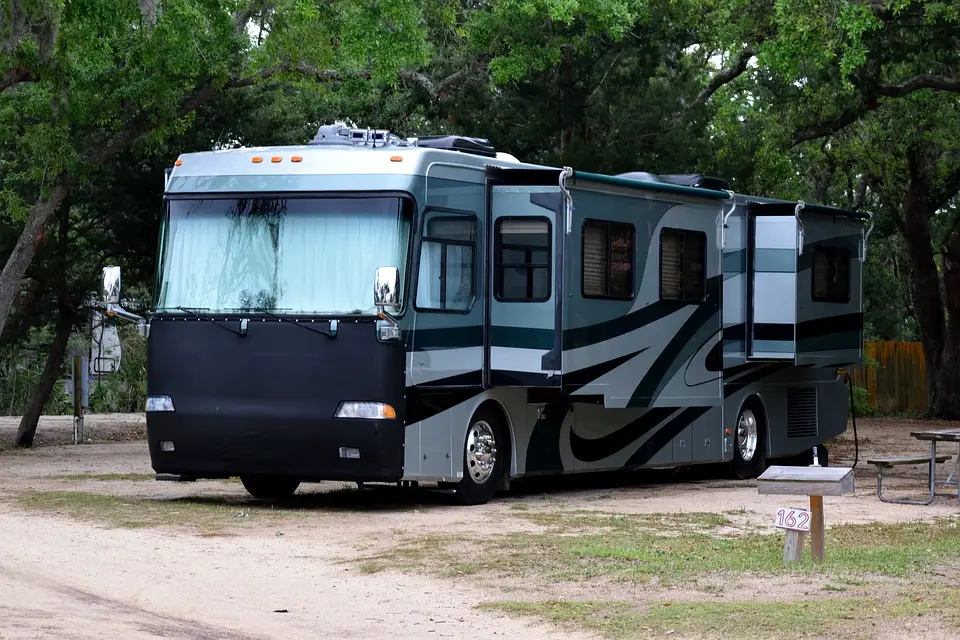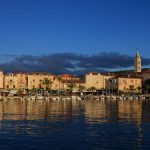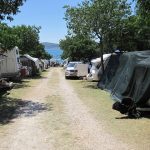As Novac/Jutarnji list/Barbara Ban writes, Croatian campsites, along with holiday homes, has proven to be the most sought after form of accommodation back during 2021’s and previous pandemic-dominated tourist seasons. Croatian campsites performed excellently all summer long, but also after the height of the season passed. If the pre-season had been epidemiologically more stable, the results would have been even better.
The world of Croatian campsites cannot be dissatisfied with what they’ve managed to acheive, especially if numerous awards are added, both from Croatia and from abroad,. All of this was revealed by Adriano Palman from the Croatian Camping Association, which recently held its annual congress at the popular Terme Tuhelj.
How did Croatian campsites take advantage of another pandemic season in 2021?
In 2021, the Croatian camping sector realised as many as 91 percent of overnight stays when compared to the very good pre-pandemic year of 2019, and compared to 2020, we achieved exactly twice as many overnight stays. Realistically, we have to admit that it was expected that Croatian campsites would be one of the first forms of accommodation to be used when it comes to tourism recovery, but these results are above all of our expectations. The fact that there were a record number of German tourists in our campsites in 2021 speaks volumes about their quality, because never before have we had more German guests in the history of camping in this country.
Of course, there are several reasons for explaining such results, but, in particular, probably the first and main reason is that – as predicted at the beginning of the year – there is a great desire to travel and return to normal, and our warm sea and quality camping content which allows for a top quality holiday are certainly one of the first choices of guests, providing a holiday in the greenery with an increased sense of safety and isolation.
However, it should be honestly acknowledged that we aren’t following some sort of exclusive trend and that the fact is that camping has become increasingly popular throughout Europe and there’s been a real boom, as evidenced by record numbers in sales of camping equipment (campers, caravans, tents) in all major camping countries such as Germany, the Netherlands, Italy, Austria, neighbouring Slovenia, and even here in Croatia.
According to the German ADAC, which is still a ”guru” when it comes to camping across Europe, Croatia is still second in the average quality of camping in Europe and third in the number of the best campsites that ADAC classifies under the ADAC Superplatz label. Thus, in 2022, Croatia will have as many as 21 Superplates, while two countries that have ten times larger capacities in camping have only a few more – France has 29, and Italy has 33.
What’s the situation on Croatia’s competitive markets?
One of the things that foreign experts pointed out to us at the recently concluded Croatian Camping Congress is that Croatian results were achieved at higher prices and without giving discounts that have often been applied by some of our competitors over these crisis years. So, when it comes to prices, it’s important to emphasise that in 2021, we were second in Europe in terms of camping prices, right after Italy, which is 9 percent more expensive than we are, but we’re significantly more expensive than Spain, which is 8 percent cheaper than us. In addition, France even reduced their prices by 5 percent in 2021. We know that in the conditions of intensifying competition, price positioning is an important factor and that is why we’re even more convinced that our path is correct and that the very high average quality of Croatian campsites and what they offer provides a good basis and justifies our prices, which our guests have confirmed. This will hopefully continue to be the case as long as we have the right price-quality ratio.
What about the issue of the unresolved ownership issues of tourist land, which has often been a major barrier to investment…
Much like the entire tourism sector, Croatian campsites do have certain problems that hinder further development of competitiveness, and what is high up on that list is unresolved issues of tourist land. It wouldn’t be correct to say that this has completely stopped investments. After all, quality indicators also refute this, but it’s quite correct to say that this has conditioned the planning and implementation of investments in camping to an extent, while ideas and plans and already reserved funds were much higher. Therefore, we’re pleased that in the coming months we definitely expect the adoption of the appropriate regulations that will properly regulate this issue and define the prices, which creates the proper preconditions for regulation and safety, which will certainly encourage an even greater investment wave and launch Croatian campsites and the whole sector very close to the first position in terms of quality in Europe.
In addition to that, another key issue that has plagued us for more than a decade now is the long and repeatedly announced adoption of the new Maritime Property Act, which is a very important topic for camping and a condition for maintaining competitiveness. Here, too, we can announce that cooperation has been established and that work on the new version of the Law is finally expected to begin at the beginning of next year, which will hopefully satisfy the interests of the public and provide Croatian campsites with the necessary competitiveness.
Further issues are also important, from labour shortages onwards, however, these are issues of general concern for tourism as a whole and are already being discussed on various sides.
What kind of camps does Croatia lack today, when looking at global trends?
In Europe, camps have been designed differently from the very beginning than in America or Australia. Sustainability and green business must play a key role in the development of camping here, and a concrete product in several typologies is built on them. The first and most commercially important is the sector of large camping resorts, which offer the widest range of services and very high quality, and the concept represents real hotels out in the open air.
Other routes are small, often family camps, camping resorts and similar sorts of facilities, which are located in attractive positions with natural beauty, urban and rural centres, intersections and traffic routes, islands and the like, and which provide a different kind of guest experience and emphasise intimacy, personal contact with the owners, socialising with other guests and joint activities. Such facilities are often simpler, and are especially important for the tourist development of continental Croatia and for the extension of the season, ie year-round work, which is still in its infancy in Croatia today, but for which there is truly exceptional potential.
Today’s most modern and highly sought after trend, is glamping. Glamping mainly exists as part of the offer of the ”main” camp, but there are more and more examples throughout Europe, including here in Croatia, that such an offer stands out from the rest and moves towards the independent development of specialised, exclusively glamping facilities.
Did we manage to raise what we have offer for the winter?
Year-round work is a relatively new trend in Croatian tourism in general, and it becomes even stranger when it is connected with the context of camps and the weather conditions of holidays which depend entirely on weather conditions. However, we still have prejudices against the outdated sun and sea system, while many European countries with poorer climatic conditions and no warm sea, such as Denmark, Germany, the Netherlands or Austria, have one of the strongest year-round camping scenes in all of Europe.
Today ,you can stay all year round in as many as 33 Croatian campsites from Istria, to Zagreb, all the way down to Dubrovnik and all the way to the East in Slavonia.
For more, check out our dedicated travel section.










